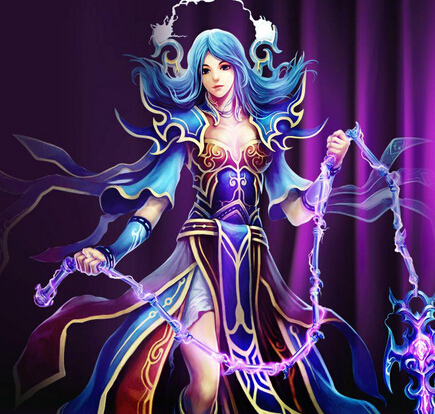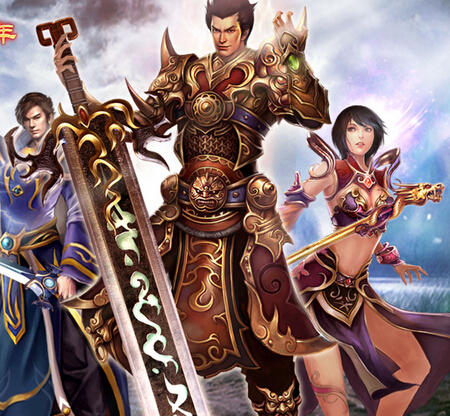Chuanqi: Exploring the Fascinating World of Chinese Mythology and Legends
What is Chuanqi?
Chuanqi, often translated as "legend" or "tale," refers to a rich genre of storytelling rooted in Chinese culture. These narratives weave together historical events, folklore, and fantastical elements, often showcasing the interplay between humans and the supernatural. As part of traditional Chinese literature, Chuanqi encompasses a broad range of themes, from romance and heroism to morality and philosophy.

The Historical Context of Chuanqi
The origins of Chuanqi can be traced back to the Tang dynasty (618-907 AD) when storytelling began to flourish in China. During this period, the art of narrative became increasingly popular, with many tales reflecting the values and beliefs of society. The genre evolved over the centuries, especially during the Song (960-1279 AD) and Ming (1368-1644 AD) dynasties, resulting in a diverse array of stories that ranged from historical chronicles to purely fantastical adventures.

One of the most notable contributions to Chuanqi literature was the compilation of stories by various scholars and writers. These stories were often performed in public spaces, such as tea houses or marketplaces, and became integral to Chinese cultural identity. The tales were not only entertaining but also served as vehicles for moral instruction, imparting lessons on virtue, loyalty, and justice.
Key Themes and Characteristics of Chuanqi
Chuanqi narratives are characterized by several recurring themes that resonate with audiences. One prominent theme is the conflict between good and evil. Many stories pit virtuous protagonists against malevolent forces, emphasizing moral dichotomies that reflect the values of Confucianism and Taoism. These tales underscore the importance of righteousness and the consequences of immoral behavior.
Another significant characteristic of Chuanqi is the inclusion of supernatural elements. Legends often involve mythical creatures, celestial beings, and magical events, blurring the lines between reality and fantasy. This intertwining of the mundane and the extraordinary captivates readers and listeners, allowing for a deeper exploration of human emotions and experiences.
Romance is also a key component of Chuanqi, often portrayed through the lens of destiny and fate. Many stories present love as a powerful force that transcends time and space, leading to tragic or miraculous outcomes. These romantic subplots often serve to enhance the main conflict, providing additional layers of complexity to the narrative.
Notable Works and Contributions to Chuanqi
Several influential works have emerged within the Chuanqi genre, with authors like Bai Juyi and Feng Menglong making significant contributions. Bai Juyi’s "The Tale of the Pipa" is a poignant example of a Chuanqi that explores themes of love and loss through the story of a musician and her tragic fate. It demonstrates the power of art to convey profound emotions and the fleeting nature of life.
Similarly, Feng Menglong’s collection "Stories to Awaken the World" features a plethora of Chuanqi tales that engage with societal issues, morality, and human relationships. This anthology illustrates the diversity of the genre, as it encompasses stories that range from humorous to deeply philosophical.
The storytelling tradition of Chuanqi has also influenced modern literature and popular culture, inspiring adaptations in film, television, and theater. Contemporary artists continue to draw upon the rich tapestry of Chuanqi, infusing traditional stories with modern sensibilities while preserving their essential themes and messages.
The Influence of Chuanqi on Chinese Culture
Chuanqi narratives have left an indelible mark on Chinese culture, shaping the way stories are told and understood. They serve as a testament to the importance of storytelling as a form of cultural expression, embodying the collective experiences and wisdom of generations. These legends remind us of our shared humanity, reflecting universal themes of love, loss, and the struggle between good and evil.
Moreover, the genre has played a critical role in preserving historical events and cultural practices. Chuanqi stories often contain elements that offer insights into the values, beliefs, and social structures of different periods in Chinese history. As such, they serve as valuable resources for understanding the evolution of Chinese cultural identity.
Additionally, the allure of Chuanqi extends beyond literature, influencing other forms of art, including paintings, operas, and sculptures. Artists have often depicted scenes and characters from these tales, creating a visual language that complements the narratives and enhances their impact on audiences. This cross-pollination of art forms serves to enrich the cultural landscape of China, ensuring that the legacy of Chuanqi endures.
Modern Interpretations and Adaptations of Chuanqi
In recent years, there has been a resurgence of interest in Chuanqi, with contemporary writers and filmmakers reinterpreting these ancient tales for modern audiences. This revival reflects a growing appreciation for traditional narratives and their relevance in today’s world. By adapting Chuanqi to suit contemporary themes and issues, creators can breathe new life into these stories, inviting a new generation to engage with their cultural heritage.
For instance, modern adaptations of Chuanqi often address social issues such as gender equality, environmental concerns, and cultural identity, resonating with the values and struggles of today’s society. By doing so, they demonstrate the adaptability of Chuanqi narratives and their potential to inspire change and provoke thought.
Furthermore, the digital age has facilitated the dissemination of Chuanqi tales through various platforms. Online storytelling, animation, and gaming have emerged as popular mediums for sharing these rich narratives, allowing for a wider reach and interaction with audiences across the globe. This accessibility serves to enrich the global understanding of Chinese culture and the timeless themes embedded in Chuanqi.
Conclusion
Chuanqi represents a vibrant and enduring aspect of Chinese culture, showcasing the power of storytelling to convey complex ideas and emotions. Through its rich tapestry of themes, characters, and supernatural elements, this genre continues to captivate and inspire audiences both past and present. As we explore the fascinating world of Chuanqi, we uncover not only the beauty of Chinese legends but also the universal truths that unite us across cultures and time. The legacy of Chuanqi is a testament to the enduring power of storytelling and its ability to shape our understanding of the world around us.

Chuanqi: Exploring the Fascinating World of Chinese Mythology and Legends:目前有0条评论